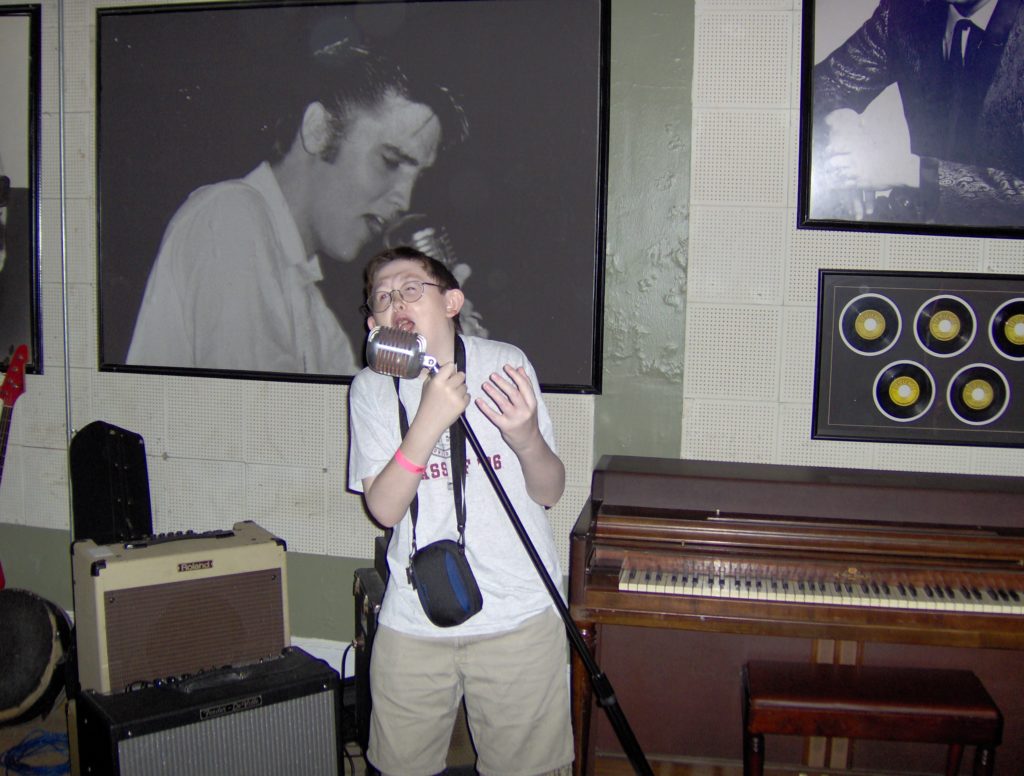I have been enjoying Ken Burns’ “Country Music” series on PBS quite a bit this week. It’s a tremendous deep dive into every era of country music…the chapter I watched last night included sections on Elvis Presley and Jerry Lee Lewis as “rockabilly” challenged traditional country music in the 1950s.
As I’m sure you can imagine, I was particularly interested in the stories of radio stations and programs that widened the popularity of country music.
In 1992 our family went to Nashville. It was one of our favorite family vacations, and the last really big trip we all took together. We visited the Country Music Hall Of Fame and RCA’s historic Studio B, where Elvis recorded some of his most iconic sides, and dozens of country legends laid down tracks.
We spent a day at the Opryland amusement park which ain’t there no more. During our Opryland visit we saw Tanya Tucker in concert. And most memorably, for me anyway, we attended a performance of the Grand Ole Opry. Wikipedia sez:
The Grand Ole Opry is a weekly American country music stage concert in Nashville, Tennessee, founded on November 28, 1925, by George D. Hay as a one-hour radio “barn dance” on WSM. Currently owned and operated by Opry Entertainment (a division of Ryman Hospitality Properties, Inc.), it is the longest running radio broadcast in US history .
The performance we saw was in the Grand Ole Opry House, an enormous venue near the theme park that still hosts the majority of Opry shows. (The Ryman Auditorium, which originally housed the show, now hosts the Opry in the off-season.) I wish I could remember more of the performers from the show we saw, but I’m only really sure of two: Porter Wagoner, he of the shiny jackets, and Grandpa Jones, who sang this song:
The thing that most impressed me about the Opry was the announcer. In between musical acts, the announcer would read live commercials for Goody’s Headache Powder and the like, and while he was doing this the audience would talk amongst themselves, vendors would be selling programs, musicians would be moving and tuning instruments. And this announcer didn’t miss a beat! At the time I was still a rank amateur in broadcasting, and in the years since I have had my own times when I have to keep talking in the face of distractions. (Not counting obvious shenanigans like when Dan Connelly threw a beach ball at my head when I was reading the news, or the time Krohe mooned me to see if I would laugh.)
Around 15 years after visiting Nashville with Mom, Dad, Jer, and Jo I spent a few days In Memphis with my pal Professor Dustin Harris. We visited Graceland–going to Memphis and not seeing Graceland is like going to Washington and not seeing the monument. We also toured the legendary Sun Records, where Elvis and some musicians took a crack at “That’s All Right Mama”, creating one of the seminal moments of rock and roll.



Memphis also had the lights and music of Beale Street, as captured in Marc Cohn’s “Walking In Memphis.” I am looking forward to the remaining chapters of “Country Music” which will include the unique country sounds made in the 60s and 70s. Hopefully they won’t be as harrowing as the episode which detailed how Jimmy Rodgers died in a hotel room choking on his own blood after a years-long fight against tuberculosis, or how Hank Williams died in the backseat of a car after getting a fatal dose of morphine.
